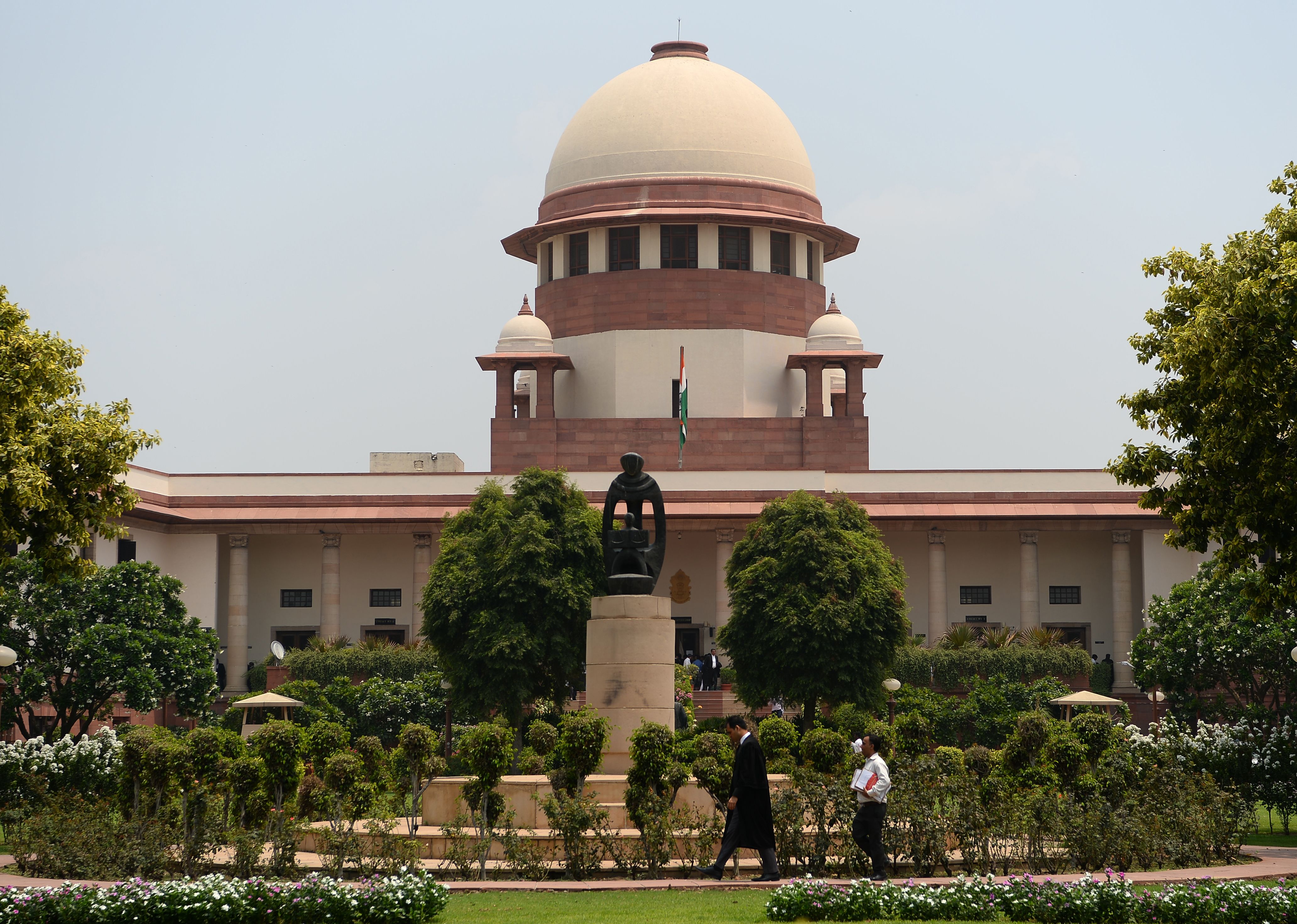Indian court to rule on landmark case of depressed woman who wants 26-week abortion
Court passes an order in the woman’s favour, only to recall it two days later

A woman in India has approached the country’s top court seeking permission to medically terminate her 26-week pregnancy citing her vulnerable physical, financial and psychological health.
While on Monday the country’s top court granted her permission to abort the baby, it eventually recalled the order two days later and passed a split verdict, sparking off a serious debate on reproductive rights in the country.
The matter is now being considered by India’s top judge, chief justice DY Chandrachud, who held his first hearing on the matter on Thursday.
The 27-year-old mother of two approached the court earlier this week saying that she was suffering from depression and lactational amenorrhea and therefore wants to terminate the pregnancy.
On Thursday, the top court criticised the woman for not making a pregnancy termination request within the legally permissible limit of 24 weeks, asking if she can wait a few weeks instead of going ahead with caesarian delivery right away.
“Why doesn’t she do it a few weeks later?” asked Justice Chandrachud. “Then the child would have a chance of survival. Because it’s a viable child,” he was quoted as saying by Live Law.
Her counsel, however, tried to explain her fragile mental state saying “she tried to [die by] suicide”.
"This is not a case where she is a minor victim...she is a married woman. What was she doing for 26 weeks? She has two children, she knows the consequences also," responded the judge.
Informing her that if the child is delivered right now it will be born with “physical and mental deformities”, the court said this would also impact the baby’s adoption chances in the country.
“The judges’ task is all about balancing rights and duties... Today if the child is born deformed, no one will adopt the child. In our country, it’s a hard fact. That child will have nobody,” said Justice Chandrachud.
“She will not be able to take care of herself also!” the woman’s counsel responded. “Her mother-in-law is taking care of the other two children.”
The court has listed the matter to be taken up again on Friday.
Earlier this week a two-judge bench of the supreme court gave permission for doctors to carry out the abortion, based on a medical report that said the woman had mental health issues that would likely increase if she kept the baby.
Yet after that judgement doctors produced a new report that said the foetus appeared “viable” and had a “strong possibility of survival”. To go ahead with the abortion, they said, “we will need a directive from the supreme court on whether a foeticide (stopping the foetal heart) can be done before termination” adding that such foeticides are generally only performed when the foetus has “abnormal development”.
The judges then gave a split judgement on whether the abortion should go ahead, with one – Justice B V Nagarathna – saying the 27-year-old woman’s decision to terminate “must be respected”.
The other judge, Justice Hima Kohli, said “my judicial conscience does not permit” the request.
She criticised the apparently “ambiguous” earlier medical report, and said: “Which court will, pray, say stop a heartbeat of a foetus which has a life?
“Which court would do that? Speaking for myself, I wouldn’t.”
To talk about anything that is upsetting you, you can contact Samaritans 24 hours a day, 365 days a year. You can call 116 123 (free from any phone) or email jo@samaritans.org.
You can also call the Welsh Language Line on 0300 123 3011 (7pm–11pm every day).
Join our commenting forum
Join thought-provoking conversations, follow other Independent readers and see their replies
Comments


Bookmark popover
Removed from bookmarks